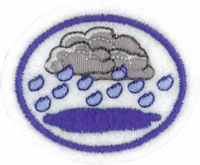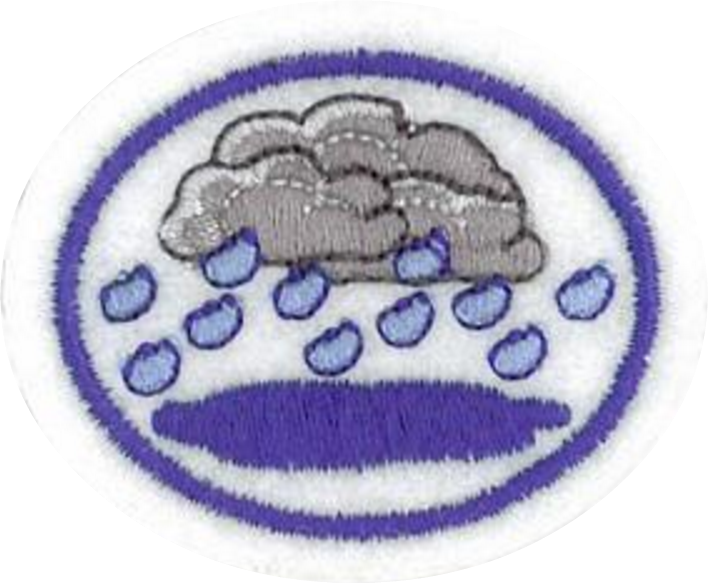Difference between revisions of "AY Honors/Water Science/Requirements/es"
(Created page with "</noinclude>Usando productos domésticos, construir un modelo tridimensional del átomo de agua. Explicar su composición química. <noinclude>") |
(Created page with "</noinclude>¿Cuál es el lago más grande del mundo? <noinclude>") |
||
| Line 9: | Line 9: | ||
<noinclude></noinclude><section end=req2 /></b> | <noinclude></noinclude><section end=req2 /></b> | ||
| − | <b>3. <section begin=req3 /><noinclude> | + | <b>3. <section begin=req3 /><noinclude></noinclude>Por medio de fotografías, diagramas o cualquier otra forma de ayuda visual, ilustrar los tres estados del agua. |
| − | </noinclude> | + | <noinclude></noinclude><section end=req3 /></b> |
| − | <noinclude | ||
| − | |||
<b>4. <section begin=req4 /><noinclude><div lang="en" dir="ltr" class="mw-content-ltr"> | <b>4. <section begin=req4 /><noinclude><div lang="en" dir="ltr" class="mw-content-ltr"> | ||
| Line 19: | Line 17: | ||
</div></noinclude><section end=req4 /></b> | </div></noinclude><section end=req4 /></b> | ||
| − | <b>5. <section begin=req5 /><noinclude> | + | <b>5. <section begin=req5 /><noinclude></noinclude>Por medio de fotografías o diagramas, identificar y hacer una lista de las cinco clases principales de precipitación. |
| − | </noinclude> | + | <noinclude></noinclude><section end=req5 /></b> |
| − | <noinclude | ||
| − | |||
| − | <b>6. <section begin=req6 /><noinclude> | + | <b>6. <section begin=req6 /><noinclude></noinclude>¿Cuál es el punto de ebullición y el punto de congelación del agua? |
| − | </noinclude> | + | <noinclude></noinclude><section end=req6 /></b> |
| − | <noinclude | ||
| − | |||
| − | <b>7. <section begin=req7 /><noinclude> | + | <b>7. <section begin=req7 /><noinclude></noinclude>Trivia de agua: Las siguientes preguntas pueden ser utilizadas en diferentes formas para promover el aprendizaje y la comprensión sobre el agua. Las preguntas pueden ser adaptadas para juegos de concurso como Jeopardy, Bingo y Wheel of Fortune, entre muchos otros. La creatividad es altamente recomendada. |
| − | </noinclude> | + | <noinclude></noinclude><section end=req7 /></b> |
| − | <noinclude | ||
| − | |||
| − | :<b>a. <section begin=req7a /><noinclude> | + | :<b>a. <section begin=req7a /><noinclude></noinclude>¿Cuál es el peso estimado de un galón (4 litros) de agua? |
| − | </noinclude> | + | <noinclude></noinclude><section end=req7a /></b> |
| − | <noinclude | ||
| − | |||
| − | :<b>b. <section begin=req7b /><noinclude> | + | :<b>b. <section begin=req7b /><noinclude></noinclude>¿El cuerpo humano se compone cuánta cantidad de agua? |
| − | </noinclude> | + | <noinclude></noinclude><section end=req7b /></b> |
| − | <noinclude | ||
| − | |||
| − | :<b>c. <section begin=req7c /><noinclude> | + | :<b>c. <section begin=req7c /><noinclude></noinclude>¿Cuál es el océano más grande en la tierra? |
| − | </noinclude> | + | <noinclude></noinclude><section end=req7c /></b> |
| − | <noinclude | ||
| − | |||
| − | :<b>d. <section begin=req7d /><noinclude> | + | :<b>d. <section begin=req7d /><noinclude></noinclude>¿Cuál es el lago más grande del mundo? |
| − | </noinclude> | + | <noinclude></noinclude><section end=req7d /></b> |
| − | <noinclude | ||
| − | |||
:<b>e. <section begin=req7e /><noinclude><div lang="en" dir="ltr" class="mw-content-ltr"> | :<b>e. <section begin=req7e /><noinclude><div lang="en" dir="ltr" class="mw-content-ltr"> | ||
Revision as of 15:29, 23 April 2021
Nivel de destreza
1
Año
2015
Version
30.04.2024
Autoridad de aprobación
División Norteamericana
1. Usando productos domésticos, construir un modelo tridimensional del átomo de agua. Explicar su composición química.
2. Hacer una lista y describir (verbalmente u oralmente) algunas características del agua que lo distingue de casi todos los otros elementos.
3. Por medio de fotografías, diagramas o cualquier otra forma de ayuda visual, ilustrar los tres estados del agua.
4.Describe, illustrate or represent the difference between clouds, snow and rain.
5. Por medio de fotografías o diagramas, identificar y hacer una lista de las cinco clases principales de precipitación.
6. ¿Cuál es el punto de ebullición y el punto de congelación del agua?
7. Trivia de agua: Las siguientes preguntas pueden ser utilizadas en diferentes formas para promover el aprendizaje y la comprensión sobre el agua. Las preguntas pueden ser adaptadas para juegos de concurso como Jeopardy, Bingo y Wheel of Fortune, entre muchos otros. La creatividad es altamente recomendada.
- a. ¿Cuál es el peso estimado de un galón (4 litros) de agua?
- b. ¿El cuerpo humano se compone cuánta cantidad de agua?
- c. ¿Cuál es el océano más grande en la tierra?
- d. ¿Cuál es el lago más grande del mundo?
- e.
What is the largest lake in North America?
- f.
Can sound travel faster through water or air?
- g.
What is the deepest point in the world’s oceans?
- h.
What is the longest river on Earth?
- i.
How long can a person survive without water?
- j.
What makes water hard?
- k.
What uses the most water in households?
- l.
What is the word used to describe how much water vapor is in the air?
- m.
What is the name of the canal that connects the Pacific Ocean with the Atlantic Ocean?
- n.
Which conducts heat more efficiently – water or air?
- o.
How much water do you need to drink daily?
- p.
What chemical is added to water to kill harmful germs?
- q.
How many gallons/liters of water are used in a 5-minute shower?
- r.
What is the longest navigable river in your country?
- s.
T or F: Water is often called the universal solvent because many things can be dissolved in it.
8.
Answer the following:
- a.
How much of the earth is covered by water?
- b.
How much of the earth’s water is fresh water?
- c.
Where is water found on earth?
9.
Select three of the following and discuss at least one way water is used.
- a.
Agriculture
- b.
Washing
- c.
Drinking
- d.
Fire Extinction
- e.
Transportation
10.
What is a body of water? Through photos, diagrams or sketches, be able to illustrate the following bodies of water below, naming one that can be found in your city, town, county or state. (if possible)
- a.
River
- b.
Lake
- c.
Sea
- d.
Ocean
- e.
Rapid
- f.
Canal
- g.
Creek
- h.
Basin
- i.
Glacier
- j.
Gulf
- k.
Harbor
- l.
Lagoon
- m.
Reservoir
11.
Discuss with a group the biblical context of at least three of the following text as each relates to the significance of water in the Bible.
- a.
Genesis 1:20
- b.
Exodus 14:21
- c.
Matthew 28:19
- d.
John 3:5
- e.
John 4:14
- f.
Revelation 22:1
12.
Demonstrate a technique that can be used to convert salt water into clean drinking water.


